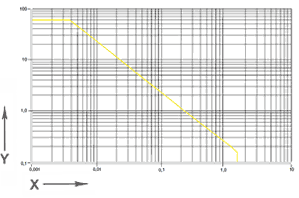The iglidur® W300 offers high wear resistance, also for rugged shafts or especially abrasive surrounding media.
Among all materials of the iglidur® series, this material has the greatest resistance to external influences.
iglidur® W300 - Material data
| General features | Unit | iglidur® W300 | test method |
| Density | g/cm³ | 1,24 | |
| Colour | yellow | ||
| Max. humidity absorption at 23°C/50% R. H. | % weight | 1,3 | DIN 53495 |
| Max. water absorption | % weight | 6,5 | |
| Coefficient of surface friction, dynamic, against steel | µ | 0,08 - 0,23 | |
| PV values max. (dry) | MPa x m/s | 0,23 | |
Mechanical properties |
|||
| Bending E-module | MPa | 3.500 | DIN 53457 |
| Tensile strength at +20 °C | MPa | 125 | DIN 53452 |
| compressive strength | MPa | 61 | |
| Maximum recommended surface pressure (20° C) | MPa | 60 | |
| Shore D hardness | 77 | DIN 53505 | |
Physical and thermal properties |
|||
| Max. long term application temperature | °C | +90 | |
| Max. short term application temperature | °C | +180 | |
| Lower application temperature | °C | -40 | |
| Heat conductivity | [W/m x K] | 0,24 | ASTM C 177 |
| Coefficient of thermal expansion (at +23°C) | [K-1 x 10-5] | 9 | DIN 53752 |
Electrical properties |
|||
| Specific forward resistance | Ωcm | > 1013 | DIN IEC 93 |
| Surface resistance | Ω | > 1012 | DIN 53482 |
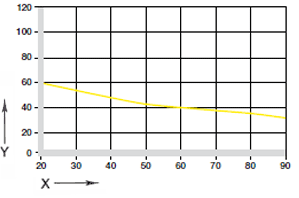
Figure 02: Maximum recommended surface pressure dependent on the temperature (60 MPa to +20 °C)
X = Temperature [°C]
Y = Load [MPa]
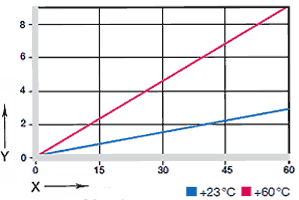
Figure 03: Deformation under load and temperatures
X = Load [MPa]
Y = Deformation [m/s]
Mit steigenden Temperaturen nimmt die Druckfestigkeit von iglidur® W300-Gleitlagern ab. Abb. 02 verdeutlicht diesen Zusammenhang. Die maximal empfohlene Flächenpressung stellt einen mechanischen Werkstoffkennwert dar. Rückschlüsse auf die Tribologie können daraus nicht gezogen werden.
iglidur® W300 shows a very high compressive strength despite high elasticity. Figure 03 shows the elastic deformation of iglidur® W300 with radial loads. Under the maximum recommended surface pressure of 60 MPa, the deformation at room temperature amounts to less than 3 %.
| m/s | Rotary | oscillating | Linear |
| Constant | 1 | 0,7 | 4 |
| Short-term | 2,5 | 1,8 | 6 |
Table 02: Maximum surface speeds
Even at higher surface speeds, the coefficients of friction of iglidur® W300 bearings do not increase. Therefore compared to other materials it can attain slightly higher surface speeds, for instance up to 1.5 m/s rotating and up to 5 m/s linear. Due to the extraordinary wear resistance, the bearing wear remains low also in long-term application with high speeds. Extremely high speeds can be attained with iglidur® W300 bearings on hardened, not too smooth shafts.
| iglidur® W300 | Operating temperature |
| Lower | - 40 °C |
| Upper, long-term | + 90 °C |
| Upper, short-term | + 180 °C |
| Secure axially in addition | + 60 °C |
Table 03: Temperature limits for iglidur® W300
iglidur® W300 bearings retain their extraordinary abrasion resistance even up to the maximum permitted application temperatures and do not tend to become brittle at low temperatures. An additional securing is recommended at temperatures higher than +60°C.
| iglidur® W300 | Dry | Grease | Oil | Water |
| Coefficients of friction µ | 0,08 - 0,23 | 0,09 | 0,04 | 0,04 |
Table 03: Temperature limits for iglidur® W300
Just like the wear resistance, the coefficient of friction µ, friction coefficient in short, also alters with the load. In contrast to other iglidur® materials, the coefficient of friction of the iglidur® W300 remains constantly low even at higher peripheral speeds.

Fig. 04: Coefficients of friction according to the surface speed, p = 0.75 MPa, Cf53 shaft
X = Surface speed [m/s]
Y = Coefficient of friction μ
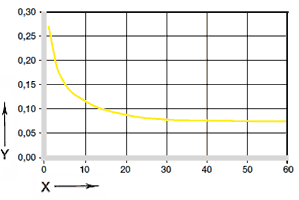
Fig. 05: Coefficients of friction dependent on the load v=0,01 m/s
X = Load [MPa]
Y = Coefficient of friction μ
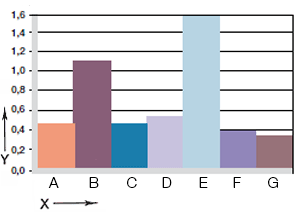
Fig. 06: Wear with various shaft materials p = 1 MPa, v = 0.3 m/s
X = Shaft material
Y = Wear [μm/km]
A = Aluminum, hard-anodized
B = machining steel
C = Cf53
D = Cf53, hard chrome-plated
E = St37
F = V2A
G = X90
Friction and wear also depend to a high degree on the reverse partner. Very smooth shafts increase the coefficient of both friction and wear. Smooth shafts entail the danger of stick-slip. The squeaking noise as an effect of stick-slip is often the result of extremely smooth shafts. Shaft surface finishes of 0.4 to 0.5 µm are the best. For the iglidur® W300, the wear resistance is still excellent with this surface finish as the friction adopt the minimum value. Figure 06 shows a summary of the results of tests with different shaft materials. At high loads, hardened shafts should be chosen. Please contact us in case the shaft material scheduled by you is not included here.
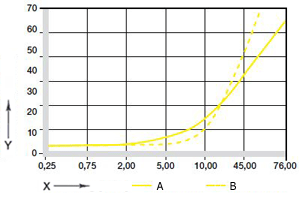
Fig. 07: Wear at rotating or oscillating motions with CF53 shaft material dependent on the load
X = Load [MPa]
Y = Wear [μm/km]
A = rotating
B = oscillating
| Medium | Resistance |
| Alcohols | + to 0 |
| Hydrocarbons | + |
| Fats, oils, without additives | + |
| Fuels | + |
| Diluted acids | 0 to - |
| Strong acids | - |
| Diluted bases | + |
| Strong bases | 0 |
All specifications at room temperature [+20°C] Table 05: Chemical resistance of iglidur® W300
Electrical properties
| Specific forward resistance | > 1013 Ωcm |
| Surface resistance | > 1012 Ω |
iglidur® W300 bearings have a good resistance against chemicals. They are resistant to most lubricants. The iglidur® W300 is not affected by most weak organic and inorganic acids.
iglidur® W300 bearings are radiation resistant up to a radioactive intensity of 3 · 102 Gy.
igubal® W300 plain bearings are permanently resistant against UV rays. A slight colour change influences the properties only insignificantly.
In vacuum, iglidur® W300 plain bearing degases. The use in vacuum is possible only limitedly.
Bearings made of iglidur® W300 are electrically insulating.
| by +23 °C/50 % r. F. | 0,2 Wt.-% |
| Max. water absorption | 0,4 Wt.-% |
Table 06: Moisture absorption
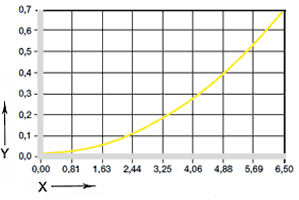
Abb. 10: Einfluss der Feuchtigkeitsaufnahme
X = Feuchtigkeitsaufnahme [Gew.-%]
Y = Reduzierung Innen-ø [%]
The humidity absorption of iglidur® W300 bearings amounts to about 1.3 Wt.-% in standard climatic conditions. The saturation limit in water is 6,5 %. This should be considered according to environmental influences.
| Diameter d1 [mm] |
Shaft h9 [mm] |
iglidur® W300 E10 [mm] |
Housing H7 [mm] |
| Up to 3 | 0 - 0,025 | +0,014 +0,054 | 0 +0,010 |
| > 3 to 6 | 0 - 0,030 | +0,020 +0,068 | 0 +0,012 |
| > 6 to 10 | 0 - 0,036 | +0,025 +0,083 | 0 +0,015 |
| > 10 to 18 | 0 - 0,043 | +0,032 +0,102 | 0 +0,018 |
| > 18 to 30 | 0 - 0,052 | +0,040 +0,124 | 0 +0,021 |
| > 30 to 50 | 0 - 0,062 | +0,050 +0,150 | 0 +0,025 |
| > 50 to 80 | 0 - 0,074 | +0,060 +0,180 | 0 +0,030 |
| > 80 to 120 | 0 - 0,087 | +0,072 +0,212 | 0 +0,035 |
| >120 to 180 | 0 - 0,100 | +0,085 +0,245 | 0 +0,040 |
Table 07: Important tolerances for iglidur® W300 bearings according to ISO 3547-1 after the press-in.
iglidur® W300 bearings are standard bearings for shafts with h-tolerance (recommended minimum h9). The bearings are designed for press-fit in a housing with h7 tolerance. After the installation in a housing with nominal diameter, the inner diameter of the bearing automatically adjusts to the E10 tolerance. In certain dimensions the tolerance in dependence on the wall thickness deviates from this (See delivery program )
More than 100,000 products available! Delivery and Customer Service Mon-Fri from 8am-8pm and Sat from 8am-12pm!
